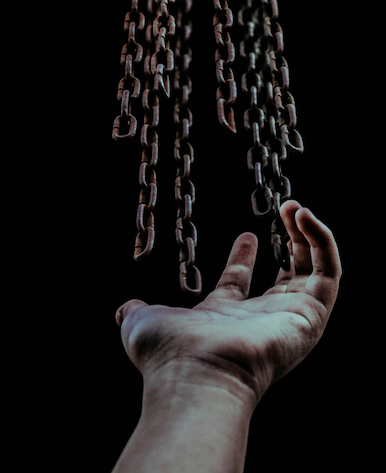Free will is something that seems intrinsic to the experience of being a human. Being able to make your own decisions, choose actions and reactions, and plan out future events, is all stuff we do day to day without questioning who or what is truly responsible. It seems simple, we are the ones who act, it must be us who consciously decided to carry it out.
Yet our common understanding of free will lacks evidence beyond the individual experience. Experiments like Benjamin Libet’s sought to measure brain activity to reveal more about the conception of thoughts, and whether or not they were based on conscious decision (Libet et al., 1979).
The results of this experiment did reveal a lot about the method through which our brain creates and responds to its own manifestations, but this alone was not enough to fully cement the validity of free will. The experiment also questioned the source of free will, suggesting that the conception of our decisions takes place within our unconscious mind, and our conscious mind is tricked into believing it was the source of the decision. However, this is irrelevant in determining the existence of free will, because regardless of the source of the decision, whether it be unconscious or conscious, it is still the individual making that choice, and their personal beliefs (again, either conscious or unconscious) that dictated the decision that their brain made. Libet’s experiment has been cited in the argument against free will and has faced criticism in its methods, with new studies suggesting that rising and falling noise in the brain is responsible for the readiness potential Libet’s experiment hinges so heavily on (Gholipour, 2019).
Others have also brought up the very valid claim that Libet’s experiment should not be interpreted as the dismissal of the unconscious mind in the debate over free will (Taylor, 2019). The unconscious mind is very powerful, and it is common for unconscious perception to regularly influence decisions made by a person. There have been many studies, such as the series of mere exposure experiments, conducted by Robert Zajonc in the 1960s, that show how subliminal messages can change decision-making (Zajonc, 1968). This is simply how our brain has adapted to respond to its environment. Without selective attention, we would constantly have an overload of information that our brain could not handle processing all at once. So some of this information is filtered through our conscious mind, and some is taken in unconsciously. Both methods of taking information affect our free will, as any information we take in changes us and affects our decision-making. However, the argument can be made that by taking in information unconsciously we are not consciously understanding it, and therefore it is not a part of what we would consider our own free will. For example, in Zajonc’s mere exposure experiment, one could argue that the subjects did not have free will over their decision to choose a shape they had been shown subliminally (Zajonc, 1968). But I would argue that their unconscious decision-making still counts as free will because their brain was still taking in information and choosing to respond based on that information. Knowledge, personality, likes, dislikes, these aspects of the self all rely on previous experiences or biological information.
Everything that makes up the individual, the agent of free will, has already been influenced by countless factors, both conscious and unconscious. Human interaction is something that undeniably influences our brains and how they may make decisions later on. And yet so much of this interaction is expressed through subliminal, unconscious information in the form of body language, tone of voice, etc (Mlodinow, 2013). These are all things that unconsciously change the way we make decisions, and to say that these influences are detrimental to free will degrades the human condition and strips us of our full experience. We exist both consciously and unconsciously, and it is the union of these mental states that results in our decision-making. Free will is not only the decisions made by our conscious thoughts, it is also our unconscious brain taking in and processing information in tandem with consciousness. Our ability to make decisions based on our personal beliefs is still intact, but our unconscious brain just has more agency than we give it credit for. It is still a part of our mind, and to say that its decisions are not our own is to say that we are not our brains, which we most definitely are.
Bibliography
Gholipour, B. (2019, September 10). A Famous Argument Against Free Will Has Been Debunked. The Atlantic. Retrieved October 19, 2021, from https://www.theatlantic.com/health/archive/2019/09/free-will-bereitschaftspotential/597736/
Libet, B. (1985). Unconscious cerebral initiative and the role of conscious will in voluntary action, Behavioral and Brain Sciences, 8(4), 529 -566.
Libet B. Wright, E. W. Jr., Feinstein, B., and Pearl, D.K. (1979). Subjective referral of the timing for a conscious sensory experience. Brain, 102, 193-224
Mlodinow, L. (2013). Subliminal: How your unconscious mind rules your behavior (1. Vintage Books ed). Vintage Books.
Taylor, S. (2019, December 6). How a Flawed Experiment Proved that Free Will Doesn’t Exist. Scientific American Blog Network. Retrieved October 19, 2021, from https://blogs.scientificamerican.com/observations/how-a-flawed-experiment-proved-that-free-will-doesnt-exist/
Zajonc, Robert. (1968). The Attitudinal Effects of Mere Exposure. 10.1037/h0025848.
